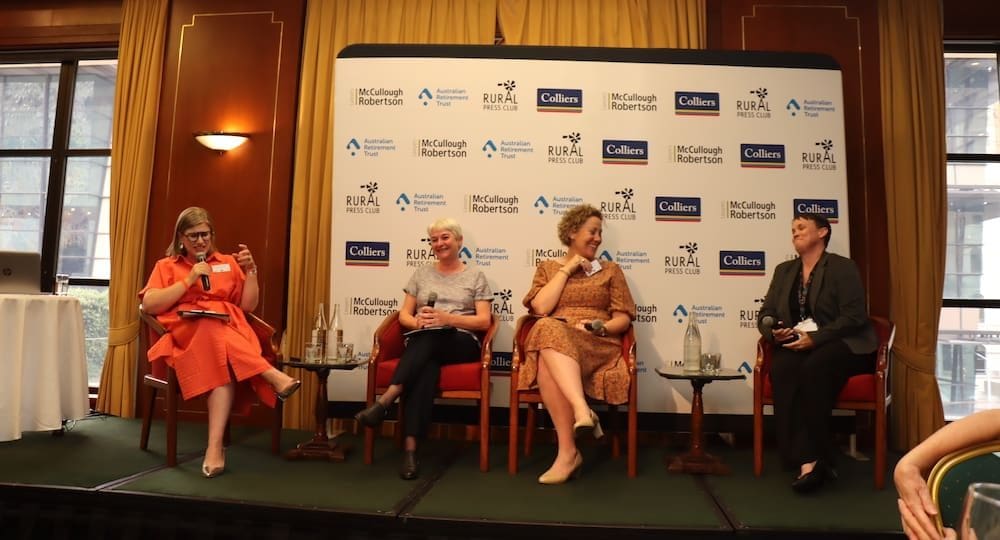
An International Rural Women’s Day event hosted by the Rural Press Club of Queensland in Brisbane has shone a light on gender equality issues in Australian agriculture, highlighting where gaps still exist but also where clear progress has been made over the past 10-15 years.
A panel discussion involving three Queensland “chiefs” – Qld chief veterinary officer Dr Alison Crook, Qld chief biosecurity officer Dr Rachel Chay and Qld chief entrepreneur Julia Spicer OAM – was moderated by ABC Queensland Country Hour co-host and Rural Press Club committee member Arlie Felton-Taylor.
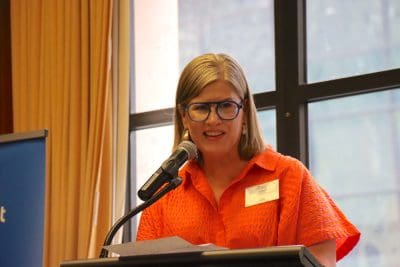
Arlie Felton-Taylor
In a candid, insightful and often entertaining session the panellists shared their experiences as women who have all risen to prominent and influential roles in regional and agricultural Queensland.
Statistics detailed early in the session showed that despite women making up more than 40pc of the global agricultural workforce, they still fill less than 30 percent of board positions in ASX-listed ag companies in Australia.
It wasn’t until 1994 that Australian women were legally recognised as farmers in their own right. Until then female farmers were listed in occupational records as “domestics”, “help mates” or “farmers’ wives”.
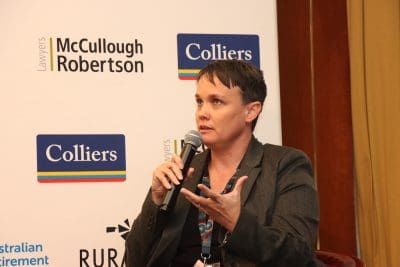
Rachel Chay
Dr Rachel Chay recalled a past experience while working in the private sector of having been knocked back for a promotion she was well-qualified for, receiving the explanation that “she had kids and things she needed to do”.
“It just cemented my resolve,” she said.
The panellists said they had always believed women could do everything.
Alison Crook was one of three daughters raised on a beef cattle farm between Warwick and Allora.
“So not only could women do everything, they did do everything,” she said.
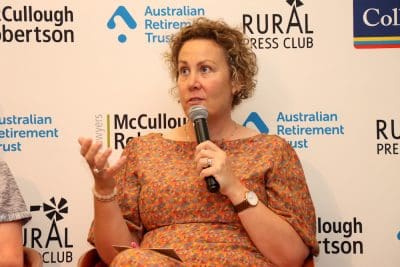
Julia Spicer
Julia Spicer was the eldest of three children on her family’s property at Injune, and was the first one “tall enough to open the gates and to ride a motorbike safelty and help dad to muster”.
It wasn’t so much a question of what gender you were, but how useful you could be, she said.
“My mum came from Ipswich, married into the community, and she always said you girls can do anything, whatever you want to do the world is your oyster,” she said.
“And it did come from a slightly different lens, because you didn’t grow up out in that part of that world, but certainly from a community perspective it was about who contributed.
“Not necessarily at that stage was it what your gender was, so I didn’t notice that early on that there was any discrepancy really.”
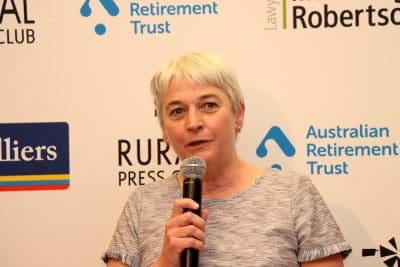
Alison Crook
Rachel Chay grew up with her sister in Brisbane. On the question of whether she believed women could do anything as a child, “it just never entered my mind that I couldn’t,” she said.
She also knew what she wanted to be a vet from a very young age.
“I announced about three I wanted to be a vet or a princess,” she said.
“And given the lack of princes in the Brisbane metro area, there it was.”
While the stats show there is still ground to make up, it was also clear that significant progress has been made.
The fact that women being in leadership positions is no longer questioned was one measure of that progress.
There was a time in agriculture when people were saying, ‘well, where are all the women?”, Dr Alison Crook recalled.
“Whereas now, they’re there,” she said.
“They’re there, and it is normal, it is expected, and it is just part of the scenery now.
“I think what is missing now, thank goodness, is the novelty factor.”
Dr Rachel Chay also noted that gender-based pay disparity is no longer an issue in the public service.
“I think that is something the public sector does really well, it really is as far as I can tell gender blind from a pay perspective as you can probably get.”
ABC Landline journalist Pip Courtney asked the panel during the Q&A session if they believed the time may come when need an international rural women’s day will no longer be needed, because farmers will be farmers.
Julia Spicer said there had long been a debate about whether women’s awards and rural women’s awards were necessary, but noted that they still played a role in encouraging women to step forward.
“I think we still need to create a space where women feel they can step forward and the women’s awards give people a chance to do that. When we have a (general) award we still don’t seem to have as many women apply, so I think there is still some work to be done that.
“I think we still still see it for a bit longer.”
